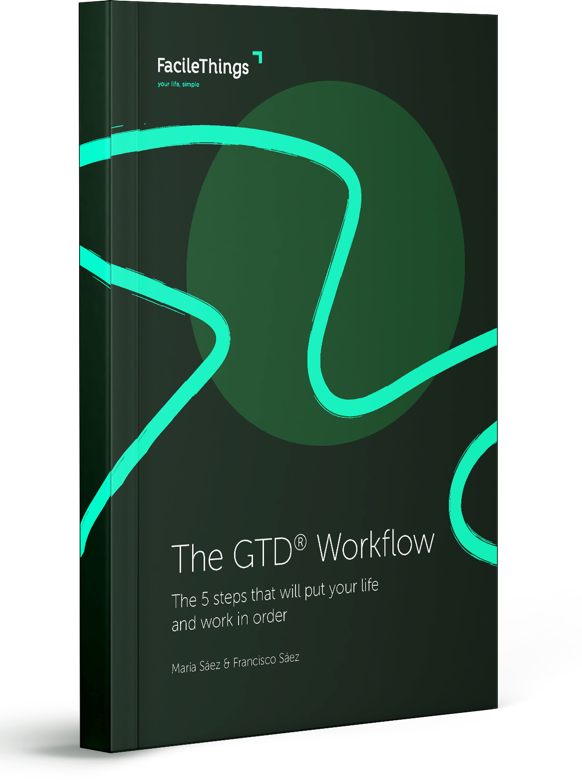Getting Things Done - GTD
Gaining Perspective at Project Level
AUTHOR: Francisco Sáez"You need to have thought enough so you don’t have to think." ~ David Allen

Gaining Perspective:
1. Gaining Perspective
2. Gaining Perspective Through Actions
3. Gaining Perspective at Project Level
4. Gaining Perspective from the Areas of Focus
5. Gaining Perspective Through Goals
6. Gaining Perspective at a Higher Level: Vision
7. Gaining Perspective at the Highest Altitude: Purpose and Principles
The project level is the level that follows in height the action level discussed in the previous article.
In Getting Things Done (GTD), projects are defined generally as any result that can be achieved in less than a year and requires more than one action. According to this definition, any person can have an inventory of between thirty and one hundred pending projects at any given time, if all the issues related to personal and professional life are included.
Projects can have very different degrees of complexity (pumping up the tires on a bike, launching a new company) but, regardless, these are open loops that need to be reviewed regularly.
A project can be thought of as a small goal and, like goals, they are not something you can do. What you can do are the actions that lead to the completion of the project. That is, you don’t do a project, you carry out a series of actions until you consider the project completed.
When we define a desired outcome, there are a number of verbs that point to outcomes that usually fall into the category of projects, such as finalize, implement, research, publish, distribute, maximize, learn, set up, organize, create, design, install, repair, submit, handle, and resolve. You can use this list of verbs (and other synonyms or similar) to become aware of what projects you currently have pending.
The best tool for managing the project horizon is a simple project list that serves as a general index of pending issues. Some of the projects, due to their complexity, may need other formats to house additional information to facilitate their review (planning, supporting material, etc.). A physical or digital folder with the name of the project can be used to contain these materials.
Getting involved with your projects
There are three different moments when you should focus on this level of perspective:
- Once a week, in a complete review that allows you to catch up on the actual status of your project list.
- Any time you have the feeling that there are important projects that aren’t having the relevance they should have in your life.
- Any time you feel you have lost control of your priorities.
The Weekly Review is one of the most important contributions of GTD and probably the one that most helps the system to work as a whole. It’s a process composed of a series of steps whose objective is to clean up, update your lists and push you to be creative.
The updating phase serves to refresh the inventories of actions and projects that you haven’t been able to bring up to date during the week. It’s quite likely that things have come up during the last few days that involve the creation of new projects or the review and modification of some existing ones.
The last phase of the Weekly Review invites you to be creative. It’s a time when, once everything is up to date and properly organized, you can allow yourself to wander without any restrictions, and jot down any thoughts or ideas that may give rise to interesting potential projects.
Once the Weekly Review is done, your project list should be up to date and you should have at least one next action for each of your pending projects somewhere in the system, usually in the next action list or in the calendar.
Of course, some projects will need to be reviewed more frequently (even daily if they are close to a deadline) and others can be ignored for weeks without any problem. The Weekly Review helps you keep an eye on all of them.
Thinking at a project level
By regularly engaging with your projects you provide your brain with the information it needs to be able to deal with the complexities of your life. You feed what is often called informed intuition, the intuition we use to make most of our decisions, which is actually backed by real information and data.
It’s usually only necessary to dedicate time to this project-level thinking every few days, always with a certain level of calm and concentration (hence the Weekly Review). Moments when you are executing actions are not suitable for this type of thinking. This type of thinking should, in fact, be prior to the execution of actions.
The rest of the days you don’t need to think at this level, but carry out what you’ve already thought through. In the words of David Allen, you need to have thought enough so you don’t have to think — just act.
It’s common to speak of a parallel between this type of thinking and elite sports. A team plans, strategizes and trains throughout the week so that when the game starts, there is no need to think. The preparation has already been done, now all that remains is to act.
From a perspective standpoint, almost no one has trouble focusing on the action level (after all, actions are the most visible elements of life to deal with), but many people find it difficult to quietly devote an hour of their weekly time to focus on the project level.
If you manage to establish the habit of reviewing your projects once a week, this will probably be the practice that will increase your productivity the most.





No comments